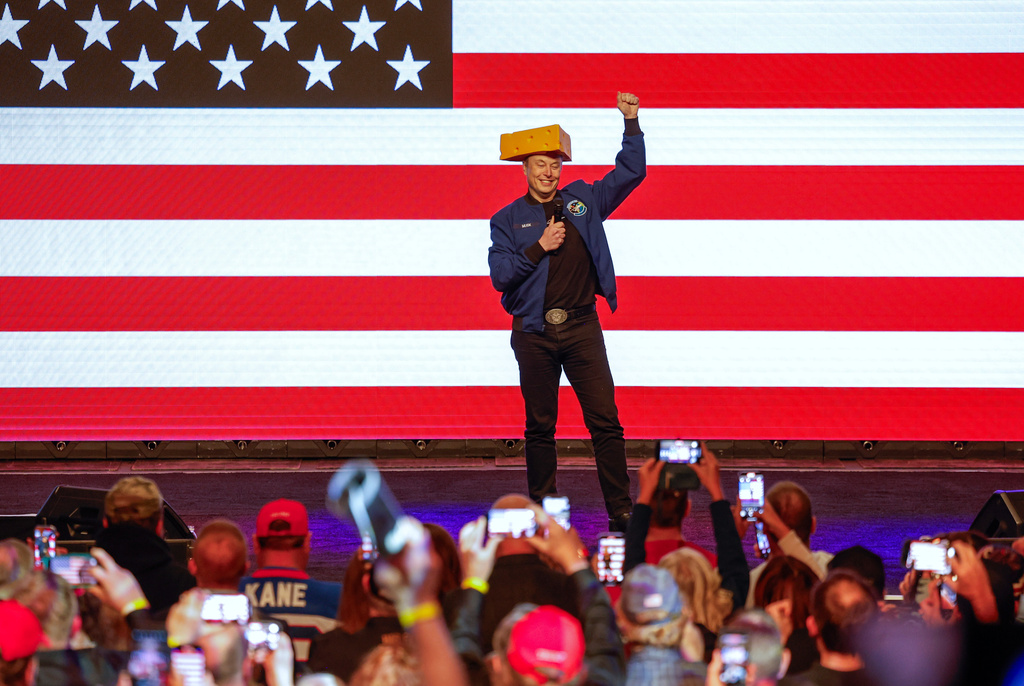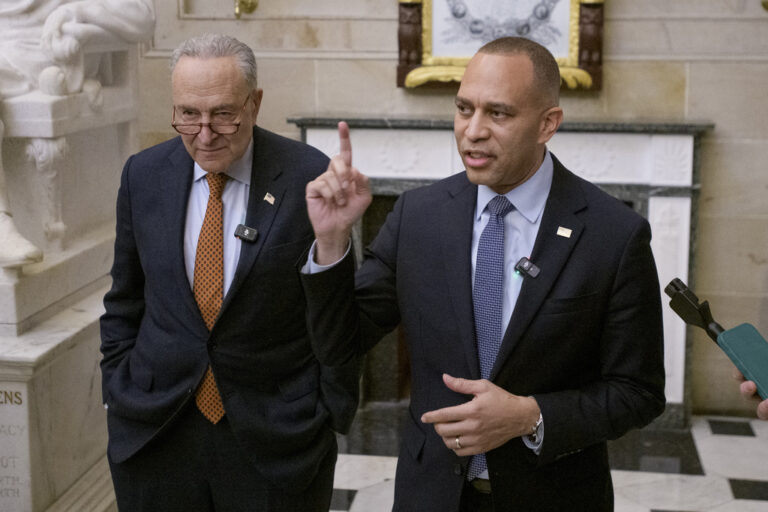
Democrats across the country could be forgiven if, for a moment, they felt a tremor of déjà vu. A cheesehead hat does not distract from the reality of a man’s influence. Standing on the stage at a rally, he writes million-dollar checks as though his cash grows on trees. He stands with an undeniable presence, spreading misinformation and singing the praises of conservatives. He speaks while spending some $20 million in the background.
The man? Elon Musk. In Wisconsin in 2025, much like Pennsylvania in November 2024, Musk put his money where his mouth was. And his backing of Trump’s right-wing revolution ought to be evidence enough of his devastating effectiveness.
The stakes of a state supreme court seat in an off-year election might seem superficially low. While state supreme courts are significant institutions, few would argue that their prominence translates to any major legislative or executive gains. But the political context of the Wisconsin victory augments its standing as a salient moment. The election result came at a time when the Democratic Party’s favorability had plummeted to an all-time low. Moreover, the Wisconsin race was one of the first political races in a swing state post-Trump’s win — a fact that Democrats have cited as evidence that the election was indeed a referendum on Trump’s presidency.
The Wisconsin election victory was an important result, particularly in the face of precipitous drops in the favorability of the Democratic Party. Last month, Senate Minority Leader Chuck Schumer capitulated to GOP members’ efforts to keep the government running, prompting outrage — a symptom of Democratic incoherence in pushing back against the Trump administration’s agenda. A number of Democrats and their voters have expressed deep dissatisfaction over the party’s perceived inability to stick to their guns. The Wisconsin election may provide Democrats with some much-needed respite from scrutiny, assuaging fears for the time being.
Recent weeks saw a burst of Democrat energy, attempting to flip the narrative of their lethargy before the midterms creeped up on them. Sen. Cory Booker soldiered through the longest filibuster in the history of this country, capping his speech at 25 hours and 5 minutes, every second of which was spent criticizing the Trump administration. The symbolism of the broken record aside, Booker’s speech was an injection of impetus to the Democrats’ lagging objectives. The victory in Wisconsin was driven equally by that impetus and the strategic targeting of Elon Musk.
Perhaps more salient, however, was the line of attack chosen by Democrats through the course of the election. The Supreme Court race came down to the equation of whether Trump was a better hero than Musk was a villain. Brad Schimel, the conservative candidate, often pointed to Trump’s endorsement as a sign of his ability, whereas Crawford quite commonly portrayed her opponent as Musk’s plentiful resources. The Democrats gambled on making Elon Musk the target of their attacks, leaving Trump and abortion rights untouched. Their gamble paid off.
Increasingly, Musk has become the Democrats’ boogeyman, drawing unpopular sentiment from both ends of the political spectrum. Trump, on the other hand, remains at an all-time high in his approval ratings. Democrats have made a political decision by focusing their critique of the current administration to actions within Musk’s purview, i.e., identifying wasteful spending and pertinently, cutting jobs and programs. Crawford’s rallying cry zoned in on Musk’s elitist attempts to “buy” the election, even when she was being funded by billionaires on the left. Musk’s efforts in November were, perhaps, a double-edged sword: his visibility and carelessness in decimating programs for middle- and low-income Americans have opened him up to a scathing critique of his elitism — an accusation often hurled at Democrats for ignoring the needs of the working class.
Elsewhere, in Florida, the Democrats had another reason to rejoice. Both Mike Waltz and Matt Gaetz had left vacant representative seats in the House pursuant to their appointment (or near-appointment) to Trump’s cabinet. Both of those districts saw Republican victories, shoring up the GOP’s narrow majority. However, Democrats must be pleased, if not buoyant, about their performance in Florida. Districts in a red state that Trump won by over 30 percentage points were reduced to victories of about 14 percentage points. Even in defeat, voters’ attitudes seem to be souring on Trump and Elon Musk. The energy of a democrat fightback became almost infectious, allowing them to outperform their disappointing November defeat.
However, Democrats ought to read these results with an ounce of caution. Republicans cemented strict voter ID laws into the Wisconsin Constitution. There may be little correlation between a State Supreme Court victory and a revival of the Democratic party, especially if the economy improves. While their margins narrowed, they still ended up losing seats to GOP members in Florida. But the elections do prove that when the Democrats pivot to representing pressing concerns of the middle-class by targeting Musk’s elitism, they can still be successful. And that is the lesson they will be taking.
“As a little girl growing up in Chippewa Falls, I never could have imagined that I’d be taking on the richest man in the world for justice in Wisconsin — and we won,” Crawford declared in the wake of her victory. Consciously, she invoked Musk’s millions in an elitist critique of an unpopular figure. In the end, the Democrats had nothing to worry about. Democrat-backed Crawford won the Supreme Court Seat by more than eight percentage points. Crawford, a former prosecutor and circuit judge, found every district of Wisconsin friendlier than Kamala Harris had in November, bettering Harris’ performance in turnout, margins, and ultimately, in outcome. The Democrats found their voice, and Elon Musk was their target. And in some ways, he was a better target than Trump.
The Zeitgeist aims to publish ideas worth discussing. The views presented are solely those of the writer and do not necessarily reflect the views of the editorial board.



